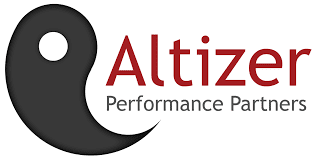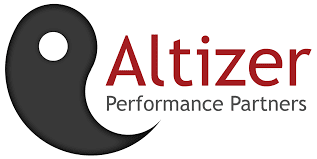
Mindful – What? (And Why?)
If you were reading Harvard Business Review, Forbes, Time or pretty much any business media in 2016 or 2017, you read about “mindfulness.” Mindfulness has been on a roll lately from the clinic and yoga studio to the office and desk. While several marque companies have integrated mindfulness into their workplaces, most business people, especially small businesses, remain unaware or uncertain of what “it” is or if “it” is right for their company.
In our +60 combined years of professional life, we have faced the challenges of driving and balancing business performance and wellness. As mindfulness coaches and teachers of yoga and martial arts, we have also experienced and seen tangible benefits from mindfulness practices at work and in life. Whether you are a meditating yogi or a skeptical show-me type, there are a few things about mindfulness you might consider before diving in or slamming the door.
What It Is
Mindfulness, sometimes called “being in the moment,” is essentially paying attention in a sustained and focused way: deliberately, in the present, and without judgment. Practitioners learn how to balance awareness and attention to effectively manage their reaction to what they perceive – improving decision-making and communication. It has been around since the 1970’s and the practices often associated with it – yoga, breathing, and forms of meditation – have been around for centuries. The clinical benefits are well documented: reducing stress response, improving memory and focus, reduced emotional reactivity, improved cognitive flexibility and even enhanced relationship satisfaction.
With these benefits, it’s no surprise more businesses are looking toward mindfulness as a solution, particularly small businesses with fewer resources and increasing demands and stress. But before bringing in yoga classes and group meditations, you first have to decide if it’s worth it.
As with any program, the first question is, “What problem am I solving / benefit am I seeking?” We find it effective to think of workplace mindfulness as integrating performance and wellness for employee, teams, and leaders.
Improving Employee Health & Wellness
The health and wellness benefits of yoga, breathing, and meditation are genuine and proven to reduce the physical, emotional, and mental costs of stress – including workplace stress. While larger companies often conduct employee programs and regular classes, small businesses may find it more effective to introduce a short list of workplace-appropriate practices to employees, let them pick what works for them, and support the initiative by the boss doing something him or her self.
Improving Team Performance
Introducing mindfulness can be a means of facilitating team effectiveness. Simple techniques like the “mindful pause” help people transition from the last meeting into the current one. A shared breathing practice can re-energize a lagging meeting or help people get centered, enhancing collaboration in a tense meeting. Teams that share routines of fitness and fueling increase familiarity, which increases the mindful trait of empathy and accelerates team performance.
Improving Leadership Performance
The benefits to leaders seem clear and are being written about, even for CEOs. And there are broader positive implications including improved decision-making, crisis response, team leadership, and strategy development. Some leaders perceive mindfulness as tolerating low performance, accepting the unacceptable or delaying or suspending decisions – it does not. While mindfulness practices increase empathy and reduce anxiety, they can also put a finer, sharper edge to a leader’s business acumen. These attributes are not mutually exclusive.
In 2016, one in five companies had some form of mindfulness initiative in place to improve business results. That’s expected to double in 2017.
Anne Altizer is a small-business owner, published author, personal trainer, and holistic nutrition consultant. Chris Altizer is a retired HR executive, including SVP and Chief Talent Officer roles at Pfizer and Aetna, and executive and team coach. Both are instructors of yoga and karate, and graduates of the Mindfulness-Based Stress Reduction (MBSR) curricula. Together they are Altizer Performance Partners, LLC, proud MBCC members based in Sunny Isles Beach.







